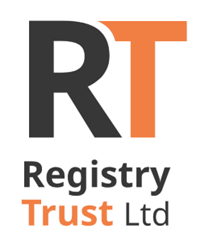Speech by Makedah Simpson, UKRN Vulnerability & Data Strategy Lead delivered at the Registry Trust AGM (April 2024)

Speech by Makedah Simpson, UKRN Vulnerability & Data Strategy Lead delivered at the Registry Trust AGM (April 2024)
Speaker: Makedah Simpson, Vulnerability and Data Strategy Lead
Event: Registry Trust AGM
Delivered: 16th April 2024
Reflections from Makedah: “In my first public address as the UKRN Vulnerability and Data Strategy Lead, I was delighted to be asked to speak at the Registry Trust AGM. Whilst our members are in different stages of their data journeys, it is important that regulators and regulated firms continue to work together to support the consumer of today and tomorrow. UKRN will continue to be a powerful catalyst for the sharing of learning and best practice and I look forward to working in partnership with organisations like the Registry Trust moving forward to continue to ensure all voices are heard.”
Key points:
- Our member regulators may start from different parameters, be in varied stages of their data journeys, and may hold contrasting opinions within their own respective sectors; however, we can all agree that we want customers across all sectors to be provided with the right levels of support from their company or provider when they need it.
- The 2020 UKRN report ‘How can we help you?’ draws together several challenges and suggestions which are still relevant in today’s landscape.
- The UKRN will continue to engage and work with not only our members but in collaboration with Government and key stakeholders & experts from the private, public and third sectors such as the Digital Regulation Cooperation Forum (DRCF).
- There is a continued opportunity to work together to find avenues to share data in a way that safely works for people especially those that are in the most need. Regulators and firms can and must continue to work together to reassure each other and consumers that identifying vulnerabilities and working towards a culture of sharing this information is something to strive for.
Speech:
I wanted to thank the Registry Trust for providing this opportunity to speak to you as Vulnerability and Data Strategy Lead for the UK Regulators Network or UKRN if abbreviated. For those that are less familiar, the UK Regulators Network is a membership organisation which has eighteen regulatory members including the Financial Conduct Authority, the Payment Systems Regulator, the Competition and Markets Authority and the Information Commissioners Office.
When considering today’s theme [Public Data for the Public Good – Using data to support financial inclusion], I immediately and naturally considered the resounding increase in the discussion around data and its connection to Vulnerability, but data has remained a key focus for UKRN throughout our ten years of inception.
It has filtered through the UKRN’s wider strategy, our networks overtly through our cross-sector Data Strategy Network or implicitly through the objectives or workplans of others such as the Vulnerability Network where it has been a core priority since 2018 and continues to be one of my central focuses in my role as Vulnerability and Data Strategy Lead.

As a membership organisation, we acknowledge and appreciate that our member regulators will start from different parameters, be in varied stages of their data journeys, and may hold contrasting opinions within their own respective sectors; however, we can all agree that we want customers across all sectors to be provided with the right levels of support from their company or provider when they need it.
Over the years, UKRN has in collaboration with our members released several reports and articles, held events in collaboration with the Whitehall and Industry Group exploring the power of consumer data to improve consumer outcomes and continuously supported our members through the sharing of best practice and learning from various sectors.
However, this is a mere feat in comparison to the work that our UKRN members have conducted within their respective sectors individually.
From cross-sector data sharing agreements, the release of multi-year data strategies, new and updated expectations & principles in both the management and handling of consumer data, our members have continued to work towards a world in which regulation can support the consumers of today and tomorrow.
However, the landscape of consumer data is far from perfect, and we must consider the challenges that are faced when undertaking progression within this field; especially in relation to vulnerable consumers.
In 2020, UKRN published research on consumers’ attitudes towards the identification, collection and sharing of data relating to their vulnerabilities. Our report ‘How Can We Help You?’ outlined key challenges that if rectified or addressed could support improved data practices, attitudes, and outcomes.
In our report, we found several challenges which still resonate in today’s landscape but for brevity, I’ll outline three:
- Firms and consumers overestimate the risks:
Data can be a contentious and loaded word that has a myriad of associations. The first step is to break down what is meant by the term relative to the firm and how any barriers can be addressed to progress the conversation beyond risks and onto benefits.
- Consumers are unclear on the benefits of data sharing:
Whilst some are open to sharing their vulnerabilities if prompted, consumers felt the notion of sharing their vulnerability data was redundant as there was a lack of awareness of support available. To support awareness, UKRN members have contributed to a Cost of Living and Accessibility leaflet aimed at consumers outlining various levels of support that are available to them which will be released in the forthcoming weeks.
- The narrative of consumers’ resistance to data sharing makes it difficult for firms to make change:
Several firms identified the challenges of consumer disclosure with a consensus that some consumers may not be interested in data sharing. Whilst firms are right to recognise this concern, consumers within the research who were initially adverse to sharing vulnerability data were much more open to change once they understood the potential benefits and clarity was achieved about the nuances of the data sharing process.
So how could these challenges be addressed? In our report, we listed several steps that all sectors could seek to implement including some that I’ll mention now:
- Reframe the language around ‘data sharing’. This can support negative associations with the term; leaning in and speaking about the benefits can assist not only the firm but ultimately the consumer.
- Taking a needs-based approach: To consumers, there must be a balance between storing and using information in a non-intrusive but useful way. It is not enough to ask about vulnerabilities. Ask or consider what the needs of the consumer are to help them navigate your services.
- Use a data sharing model that gives consumers control: Consumers would like to know exactly what information is held about them and have the ability to update this. As someone who is also a carer for someone whose needs change, this would remove an additional barrier when navigating support.
Since this report, some of these recommendations have occurred within multiple sectors including Financial Services through the launch of Consumer Duty, the outlining of expectations and affirming of other protections but whilst positive progress in this area has occurred, more can always be done.
So, what are we doing to address ongoing challenges?
We as UKRN have continued to engage and work with not only our members but in collaboration with Government on their ongoing work regarding Smart Data and key stakeholders & experts from the private, public and third sectors such as the Digital Regulation Cooperation Forum (DRCF), Citizens Advice and the Ada Lovelace Institute. But if you believe that you or your organisation can help and work with us to address these challenges, I encourage you to speak to me today or get in touch via our website.
By organising events, providing forums to connect people, and presenting regulators shared and independent priorities, UKRN will continue to be the powerful catalyst for the sharing of learning and best practice as we can ensure that our member regulators will continue to collaborate where necessary and work individually to better outcomes for consumers.
To conclude, the data landscape can be complex but there is a continued opportunity to work together to find avenues to share data in a way that safely works for people especially those that are in the most need. We are confident that working together collaboratively will continue to unlock opportunities to support consumers, learning to understand what is happening across different sectors and best practice to standardise support where possible.
Regulators and firms can and must continue to work together to reassure each other and consumers that identifying vulnerabilities and working towards a culture of sharing this information is something to strive for.
